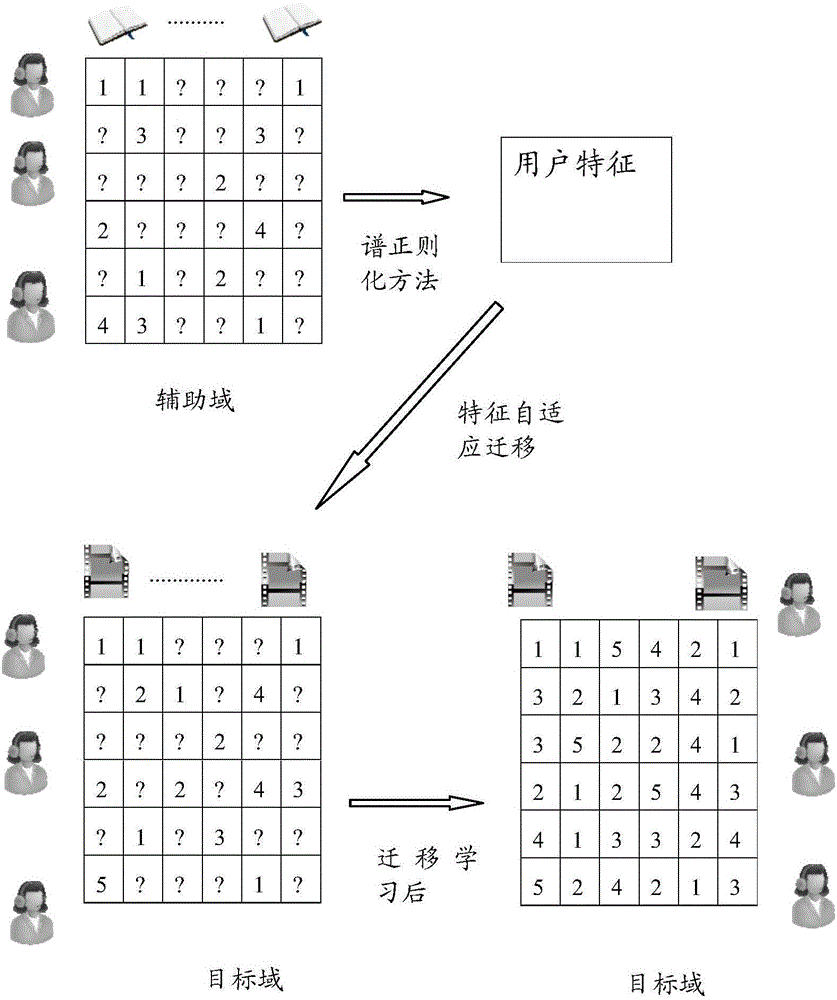Collaborative filtering method based on domain correlation self-adaption
A collaborative filtering and correlation technology, applied in the field of Internet recommendation system, can solve problems such as limited practicality, large amount of calculation, and difficulty in algorithm application, and achieve the effect of increasing calculation cost and strong practicability
- Summary
- Abstract
- Description
- Claims
- Application Information
AI Technical Summary
Problems solved by technology
Method used
Image
Examples
Embodiment Construction
[0035] The present invention will be further described below through specific embodiments.
[0036] refer to figure 1 , the method of the present invention mainly includes two steps: (1) Propose a new transfer learning model on the basis of the traditional matrix factorization model; (2) Use an iterative algorithm to solve the new model, and perform auxiliary domain and target domain correlation adaptive computing.
[0037] 1) Establish a new transfer learning model
[0038] Traditional model:
[0039] Assume that m users evaluate n items in the target field to form a scoring matrix T∈R m×n . Write Ω={(i,j)|the i-th user evaluates the j-th item}, then the set Ω represents the index set that has been evaluated in T. At present, a classic optimization model based on the nuclear norm regularization term is
[0040] m i n Z { 1 2 | ...
PUM
 Login to View More
Login to View More Abstract
Description
Claims
Application Information
 Login to View More
Login to View More - R&D
- Intellectual Property
- Life Sciences
- Materials
- Tech Scout
- Unparalleled Data Quality
- Higher Quality Content
- 60% Fewer Hallucinations
Browse by: Latest US Patents, China's latest patents, Technical Efficacy Thesaurus, Application Domain, Technology Topic, Popular Technical Reports.
© 2025 PatSnap. All rights reserved.Legal|Privacy policy|Modern Slavery Act Transparency Statement|Sitemap|About US| Contact US: help@patsnap.com



